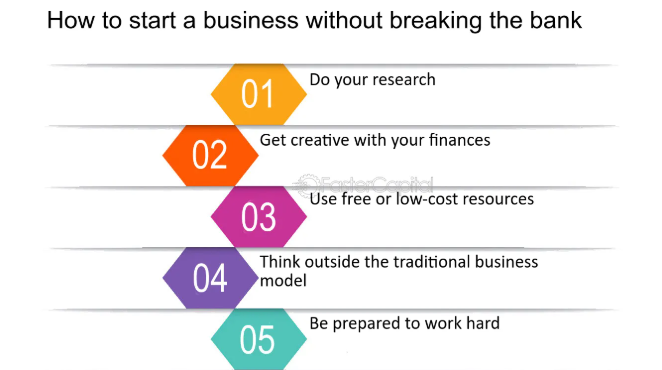Starting a business as a student without Breaking the Bank can seem overwhelming, especially when you have limited funds. However, it is achievable to establish a successful venture without emptying your savings. You can build a business with careful planning, resourcefulness, and invention while keeping your expenses low. Here’s how to start a business as a student without breaking the bank.
Start Small and Test Your Idea
Test Your Idea Before Committing Significant Resources
Before funding too much money into your business idea without breaking the bank, determine that starting small to test whether it’s viable is not a symbol of limitation but a strategy of empowerment. So, make the minimum possible product — the most basic version of your product or service — and see if there’s demand. For example, they can trade handmade jewellery, create a small batch, sell it online, or sell it to friends and family. However, this will allow you to validate your idea and make essential adjustments without significant upfront costs, giving you control over your business journey.
Use Free and Low-Cost Tools
Several free or inexpensive tools are available to help you run your business. For example, you can construct a website for free with platforms such as Wix, WordPress, or Shopify’s basic plan. Use social media platforms such as Instagram, Facebook, or Twitter to market your business, which are all free to use. For project administration and communication, tools like Trello or Slack are usually available at no cost for small teams. These tools help keep your business running smoothly while maintaining expenses low.
Leverage Your Skills
As a student, you likely have practical skills to leverage to start your business. Whether graphic design, writing, web development, or tutoring, you can monetize your talents in many ways. For example, if you’re good at graphic design, you can deliver services on freelance platforms like Fiverr or Upwork. So, you can offer content creation services if you’re a skilled writer. If you’re proficient in web development, you can create websites for small businesses. However, using your existing skills helps you avoid hiring outside help and save money in the early stages.
Consider Service-Based Businesses
Service-based businesses often have lower startup costs than product-based ones. For example, service-based businesses need minimal investment in tutoring, pet sitting, house cleaning, or freelance writing. You won’t need to worry about inventory or manufacturing costs, which can be expensive. These businesses also permit you to use your time and skills more efficiently, making them an excellent option for busy students without breaking the bank.
Utilize Campus Resources
Many colleges and universities suggest resources to help students start businesses at little or no cost. These include incubators, mentorship programs, workshops, and funding chances. So, take advantage of these resources to get guidance and learn from experienced entrepreneurs. Some schools may even partner with local businesses to show discounts or support as you get started.
Start Online
Launching your business online is not just cost-effective; it’s liberating. With platforms like Etsy, eBay, and Shopify, you can start an e-commerce store with little investment. If you provide services, platforms like Upwork and Fiverr are great places to find clients without investing in marketing. Social media and online ads also make achieving potential customers on a budget more manageable, giving you the freedom to run your business from anywhere and the flexibility to handle your time as a student without breaking the bank.
Work with a Budget
Set a budget and attach it to it. So, this is not just about financial management; it’s about taking charge of your business. Starting small and avoiding unnecessary payments can help keep costs under control. Plan your spending carefully, focusing only on the conditions needed to grow your business. For example, instead of spending much on fancy office supplies, focus on what you must to provide your product or service. If you need a business card or logo, consider doing it yourself or finding affordable freelance designers. This responsible approach to your finances will ensure you make wise financial decisions and take control of your business journey.

Conclusion
Starting a business as a student without breaking the bank is entirely possible with the right approach. You can start your entrepreneurial journey on a budget by starting small, using free tools, leveraging your skills, and focusing on service-based or online businesses. Use campus resources and stay arranged with a budget to ensure you’re making wise financial decisions. So, you can build a successful business with resolution and creativity while balancing your studies.







